AMD Zen 3 Ryzen Deep Dive Review: 5950X, 5900X, 5800X and 5600X Tested
by Dr. Ian Cutress on November 5, 2020 9:01 AM ESTCPU Tests: Legacy and Web
In order to gather data to compare with older benchmarks, we are still keeping a number of tests under our ‘legacy’ section. This includes all the former major versions of CineBench (R15, R11.5, R10) as well as x264 HD 3.0 and the first very naïve version of 3DPM v2.1. We won’t be transferring the data over from the old testing into Bench, otherwise it would be populated with 200 CPUs with only one data point, so it will fill up as we test more CPUs like the others.
The other section here is our web tests.
Web Tests: Kraken, Octane, and Speedometer
Benchmarking using web tools is always a bit difficult. Browsers change almost daily, and the way the web is used changes even quicker. While there is some scope for advanced computational based benchmarks, most users care about responsiveness, which requires a strong back-end to work quickly to provide on the front-end. The benchmarks we chose for our web tests are essentially industry standards – at least once upon a time.
It should be noted that for each test, the browser is closed and re-opened a new with a fresh cache. We use a fixed Chromium version for our tests with the update capabilities removed to ensure consistency.
Mozilla Kraken 1.1
Kraken is a 2010 benchmark from Mozilla and does a series of JavaScript tests. These tests are a little more involved than previous tests, looking at artificial intelligence, audio manipulation, image manipulation, json parsing, and cryptographic functions. The benchmark starts with an initial download of data for the audio and imaging, and then runs through 10 times giving a timed result.
We loop through the 10-run test four times (so that’s a total of 40 runs), and average the four end-results. The result is given as time to complete the test, and we’re reaching a slow asymptotic limit with regards the highest IPC processors.
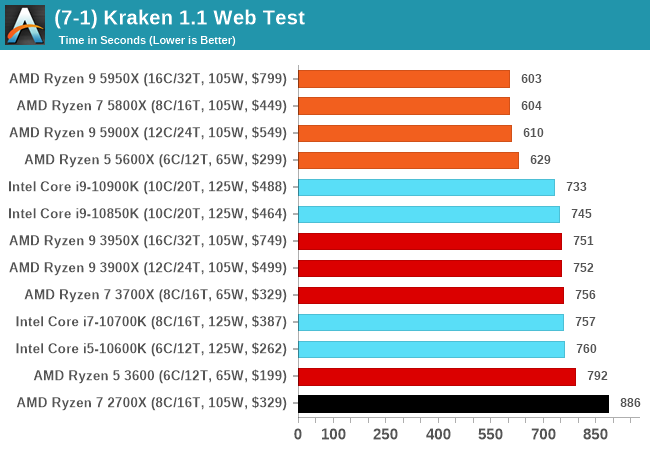
Google Octane 2.0
Our second test is also JavaScript based, but uses a lot more variation of newer JS techniques, such as object-oriented programming, kernel simulation, object creation/destruction, garbage collection, array manipulations, compiler latency and code execution.
Octane was developed after the discontinuation of other tests, with the goal of being more web-like than previous tests. It has been a popular benchmark, making it an obvious target for optimizations in the JavaScript engines. Ultimately it was retired in early 2017 due to this, although it is still widely used as a tool to determine general CPU performance in a number of web tasks.
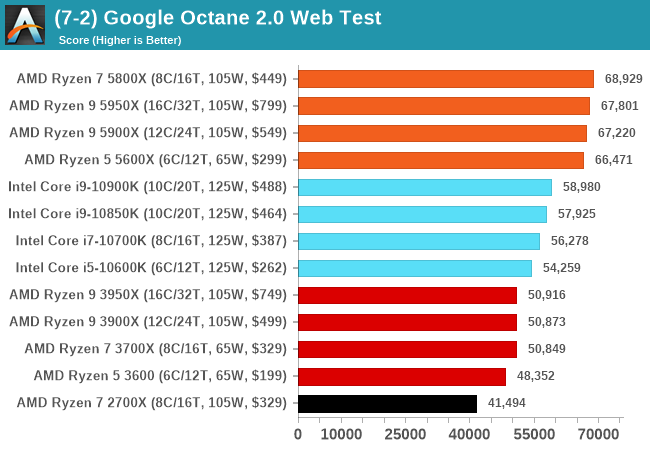
Speedometer 2: JavaScript Frameworks
Our newest web test is Speedometer 2, which is a test over a series of JavaScript frameworks to do three simple things: built a list, enable each item in the list, and remove the list. All the frameworks implement the same visual cues, but obviously apply them from different coding angles.
Our test goes through the list of frameworks, and produces a final score indicative of ‘rpm’, one of the benchmarks internal metrics.
We repeat over the benchmark for a dozen loops, taking the average of the last five.
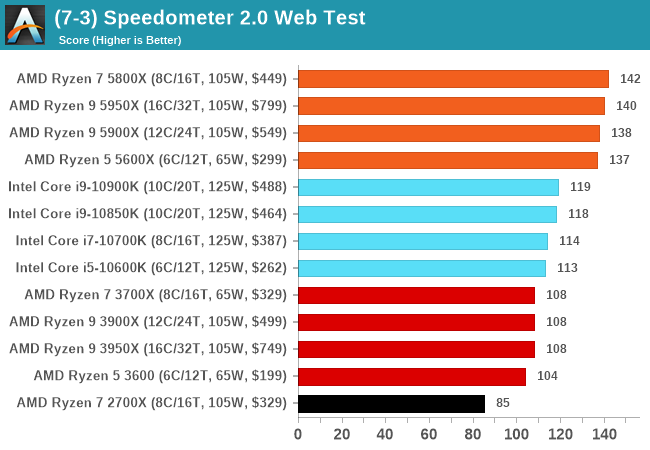
Legacy Tests
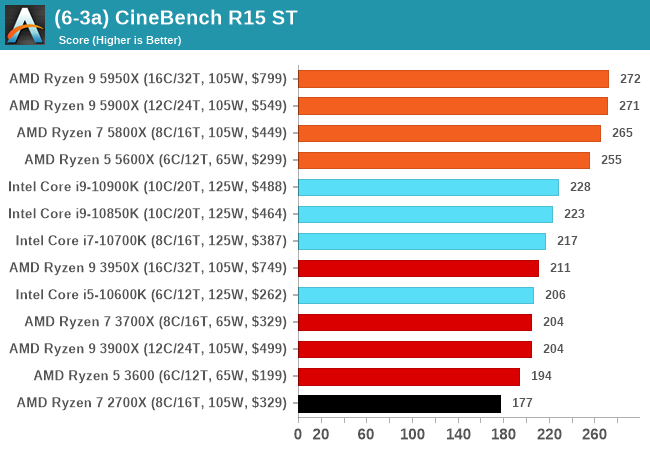
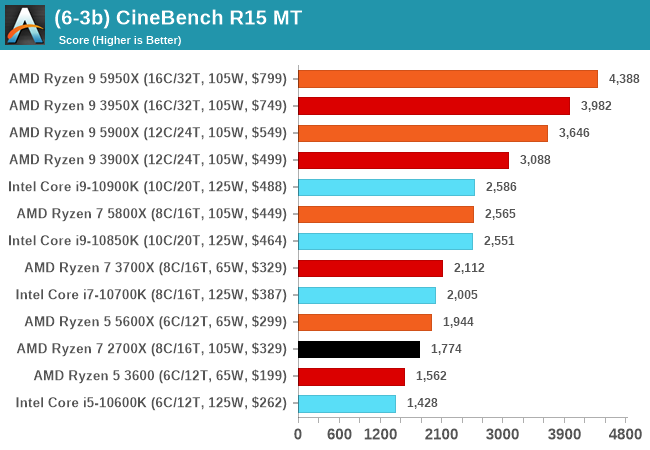
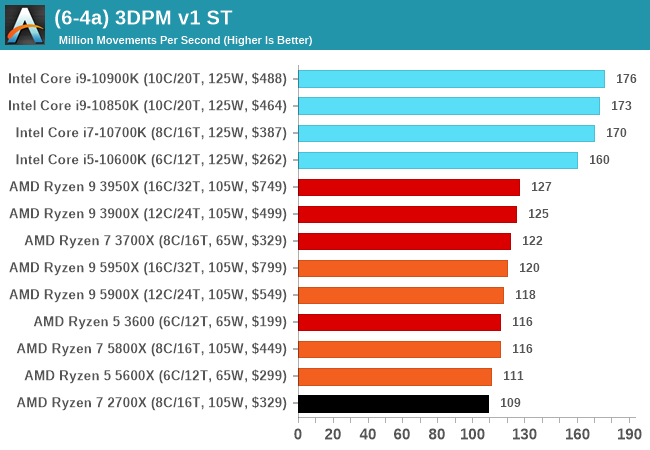
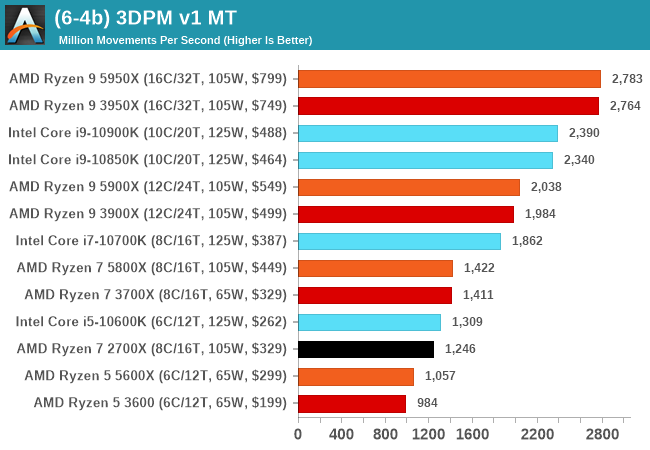


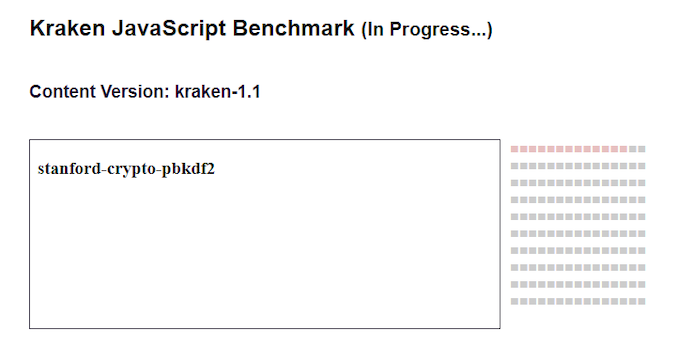
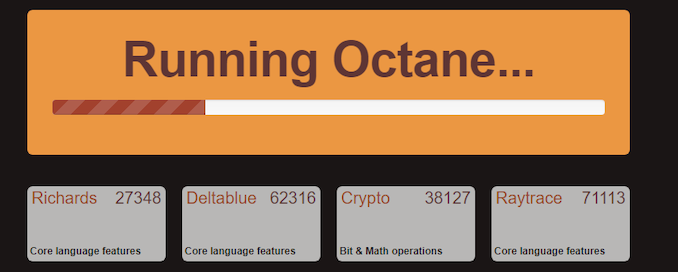
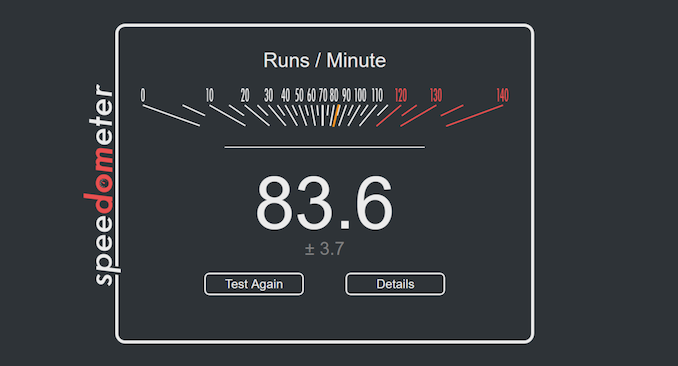








339 Comments
View All Comments
zodiacfml - Friday, November 6, 2020 - link
whut?! They were late buying the EUV equipment to save money, too much focus on profitability which will kill Intel slowly overtime.PandaBear - Friday, November 6, 2020 - link
Yup, TSMC bought about 50% of all ASML output for the next couple years while Intel only bought 5%. RIP Intel, you got what you deserve and you are going to be the next Motorola.Threska - Monday, November 16, 2020 - link
Like it says in the article AMD almost folded in 2015, and people were writing articles about it's demise. Seems no one has learned anything about predicting the future from that experience. The world needs competition. It doesn't need an AMD monopoly, nor an Intel one, and with good fortune RISC-V and maybe other competitors will come on the scene so we don't keep repeating the history of "Oh they're dying, and I'm rooting for it".Spunjji - Sunday, November 8, 2020 - link
Keep on wishing, friendJasonovich - Wednesday, November 11, 2020 - link
Hardly likely, TSMC is the bigger fish, has almost twice the capita as Intel.vais - Wednesday, November 11, 2020 - link
Luckily there are anti-monopoly laws ;)Threska - Monday, November 16, 2020 - link
Let's see how the whole ARM acquisition by Nvidia shakes out before we all start quoting monopoly laws.Kurosaki - Thursday, November 5, 2020 - link
RIP Anandtech, these reviews makes it hard to come in without error 504 or the site c crashingcatavalon21 - Thursday, November 5, 2020 - link
No issues here. Site's working fine.ballsystemlord - Thursday, November 5, 2020 - link
Same here.